
New CPRIT chemistry professor to enhance cancer research at Rice
Rice’s Department of Chemistry will soon welcome Professor David Sarlah.

New CPRIT chemistry professor to enhance cancer research at Rice
Rice’s Department of Chemistry will soon welcome Professor David Sarlah.

Rice and Houston Community College collaborate to diversify access to biomedical research training
Rice and Houston Community College collaborate to diversify access to biomedical research training through program funded by a $1.8M NIH grant.

Rice researchers stride to unlock mysteries of human development
A research team from Rice University led by Aryeh Warmflash has made strides in understanding the processes that guide human embryonic development. The group’s findings were published in the scientific journal Cells Systems May 15.

Rice study identifies protein responsible for gas vesicle clustering in bacteria
Rice University bioengineers and colleagues at Washington University in Saint Louis and Duke University identified a protein nanostructure that plays a role in the cellular structure of certain microorganisms, paving the way to more efficient biotechnological and biomedical applications.

Rice’s new Synthesis X Center has winning formula for cancer innovation
Rice has created the new Synthesis X Center to bring together clinicians treating cancer and researchers looking for cures to help spur drug discovery make precision adjustments to drug properties and translate fundamental research discoveries into clinical applications.

Rice’s Wiess School launches Center for Nanoscale Imaging Sciences
The Wiess School of Natural Sciences at Rice University has launched the Center for Nanoscale Imaging Sciences to improve the capture, analysis and interpretation of images at the nanometer scale. The center will push the frontiers of nanoscale imaging, contributing to breakthroughs in fields such as nanotechnology, materials science, biology and biomedicine.

Rice study unlocks breakthrough for breast cancer bone metastases
Rice University researchers in the lab of chemist Han Xiao have identified a promising new immunological pathway to treat stubborn bone tumors, one of most prevalent forms of metastases in breast cancer patients.

Fluorine catch-and-attach process could boost drug efficiency
Rice scientists have developed a new low-cost, safe and effective process to free up and reattach fluorine to chemical compounds. In pharmaceuticals, fluorine can expand lifetime, increase absorption and minimize side effects.
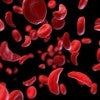
Rice expert available to comment on FDA decision on sickle cell disease therapy
Rice University’s Gang Bao is available to comment on today’s decision by the FDA on whether or not to approve a CRISPR-based therapy for sickle cell disease.
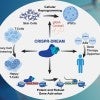
DREAM tool for gene therapies uses ‘locally sourced’ components
Rice bioengineers developed a tool that activates silent or insufficiently expressed genes using human-derived building blocks and a CRISPR-based genome-targeting platform.

Two Rice bioengineers win NIH Director’s New Innovator awards
Rice bioengineers Jerzy Szablowski and Julea Vlassakis received the NIH Director’s New Innovator Award for their respective research projects. Szablowski’s work seeks to develop a noninvasive method of mapping gene expression, while Vlassakis is studying complex, single-cell level processes and interactions in pediatric bone cancer.
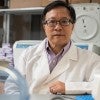
NIH funds new Baylor/Rice genome editing testing center
A five-year, $3.9 million grant from the National Institutes of Health will help establish a joint Baylor College of Medicine/Rice University center to support the development and testing of new genome editing technologies.
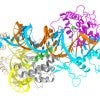
Tiny CRISPR tool could help shred viruses
Rice scientists mapped out the three-dimensional structure of one of the smallest known CRISPR-Cas13 systems then used that knowledge to modify its structure and improve its accuracy.
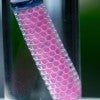
Feds fund $45M Rice-led research that could slash US cancer deaths by 50%
The Advanced Research Projects Agency for Health has awarded a Rice-led team $45 million to rapidly develop an implant with sense-and-respond technology that could slash U.S. cancer-related deaths by more than 50%.
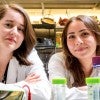
Protective particles allow engineered probiotics to report gut disease
Rice U. bioengineers developed a platform that enhances survival and function of probiotics engineered to diagnose inflammatory bowel disease in animals. The technology holds promise for minimally invasive disease monitoring and advanced smart therapeutics.